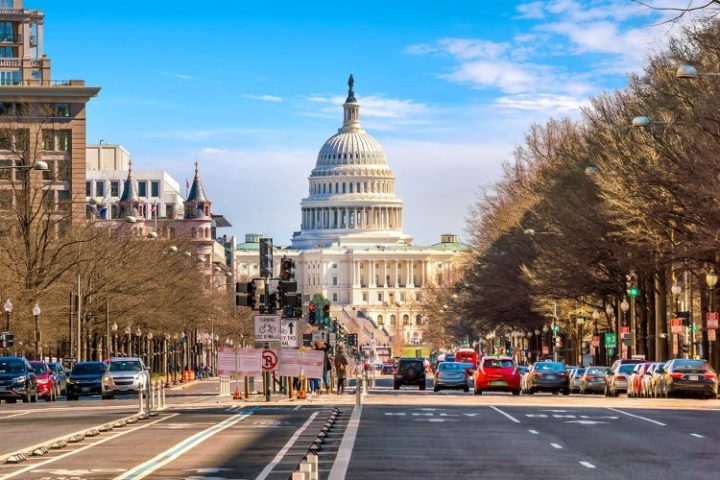
The political battle that could determine the future power balance of America now has a date.
Eleanor Holmes Norton, Washington, D.C.’s non-voting representative in Congress (and a Democrat) announced this week that the House will vote on the issue of D.C. statehood during the week of April 19.
Norton said the House Oversight Committee will hold a vote on her statehood bill on April 14 and then submit the bill for a full House vote the following week.
“The week of April 19th the House will take a historic step in righting the monumental wrong of denying the 712,000 federal taxpaying American citizens who live in the nation’s capital voting representation in Congress and self-government without congressional interference into local affairs,” read a statement by Norton.
Assuming the bill passes, it wouldn’t be the first time legislation to make a state out of Washington, D.C., has made it through Congress’ lower chamber. The Democrat-controlled House previously passed D.C. statehood, but the then-Republican led Senate killed it last year.
Since then, Democrats have worked their way up to a tie in the Senate (an effective majority for Democrats given Kamala Harris’ tie-breaking vote), while seeing their House majority shaved down to a mere 11 seats.
Under Democrats’ plan, the area now known as Washington, D.C., (with the exception of the area encompassing the National Mall, the White House, Capitol Hill, and other federal buildings) would become the 51st state under the name “Washington, Douglass Commonwealth” after abolitionist Frederick Douglass.
That would mean it would have a representative in the House and two senators. Given the city’s political makeup, these would all be Democrats.
To gain support for the effort, Democrats are painting it as a civil rights issue.
“Full and equal representation for the residents of the District of Columbia remains one of the major civil rights issues of our day,” said House Majority Leader Steny Hoyer (D-M.D.) in a statement.
He added, “I’m proud to bring Congresswoman Norton’s legislation to the Floor this work period to admit Washington, D.C., as the fifty-first state and to right a historical injustice that has denied its residents full participation in our democracy. I thank her for her leadership in addressing this challenge, which is critical not only for our region but for ensuring that our nation abides in full by its Constitutional principles of equality and civil rights.”
The bill has immense support within the Democrat Party, with 215 co-sponsors in the House — nearly all the chamber’s Democrats.
In the Senate, the bill has 42 of the chamber’s 50 Democrats as co-sponsors.
Because of the Senate filibuster, which needs 60 votes to break, the D.C. statehood bill ultimately needs 60 votes to advance or it will die in the Senate. That’s bad for news for Democrats.
While Republicans have often cowered to Democrats on other issues, making a state out of D.C. — and thereby guaranteeing a Democrat majority — isn’t gaining traction even among the GOP establishment.
“This is full-bore socialism on the march in the House,” Senate Minority Leader Mitch McConnell (R-Ky.) has said of the D.C. statehood issue.
It’s disingenuous for Democrats to say that D.C. residents don’t have representation. They already vote for president and have three electoral votes. Moreover, those who live in the capital can continue voting as residents of the states they came from, an option many choose.
If Democrats were sincerely more interested in giving D.C. dwellers representation than in scoring political advantage, they would instead advocate for retrocession, under which the capital would be shrunk, and everything beyond the main governmental area would be returned to the states the territory was taken from — not turned into its own state.
According to a Gallup poll, two-thirds of Americans oppose D.C. statehood. As left-wing CNN is forced to admit, “more than half of participants across every category — gender, race, age group, education level, political party and ideology — said they would oppose the move to grant statehood to nation’s capital city.” Even 51 percent of Democrats and 50 percent of “liberal” people oppose turning D.C. into a state.
The movement behind the “Washington, Douglass Commonwealth” is about power, not the people.




